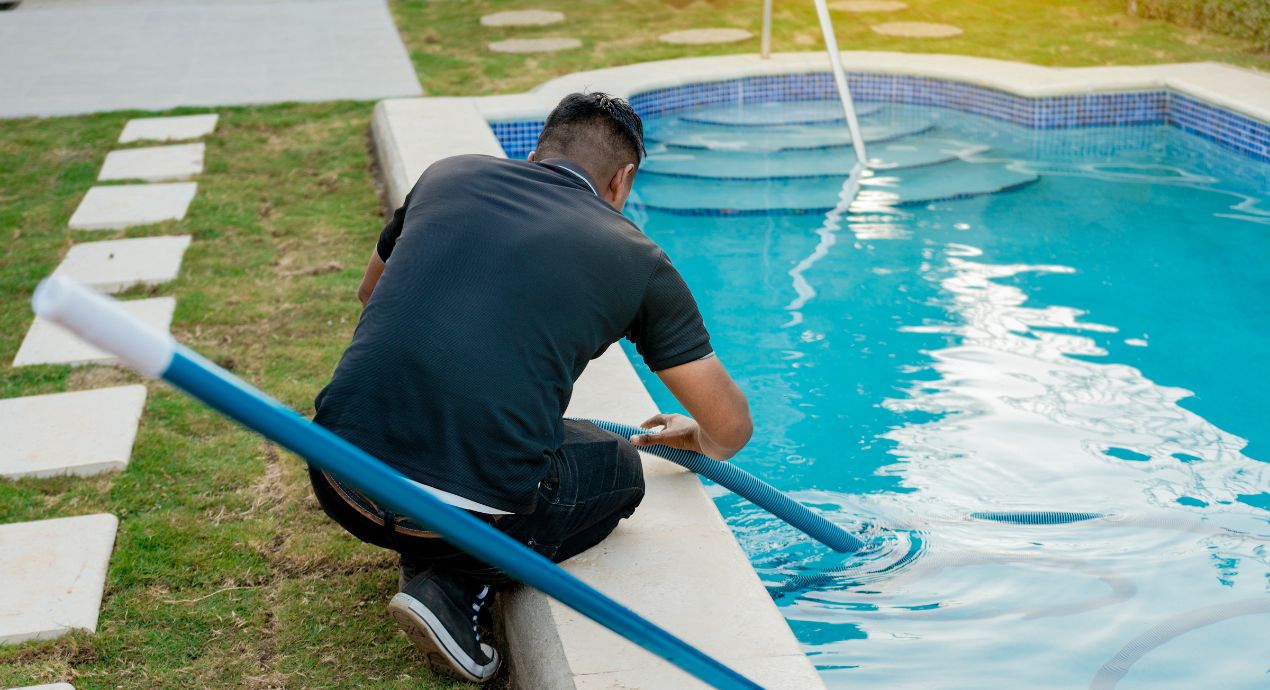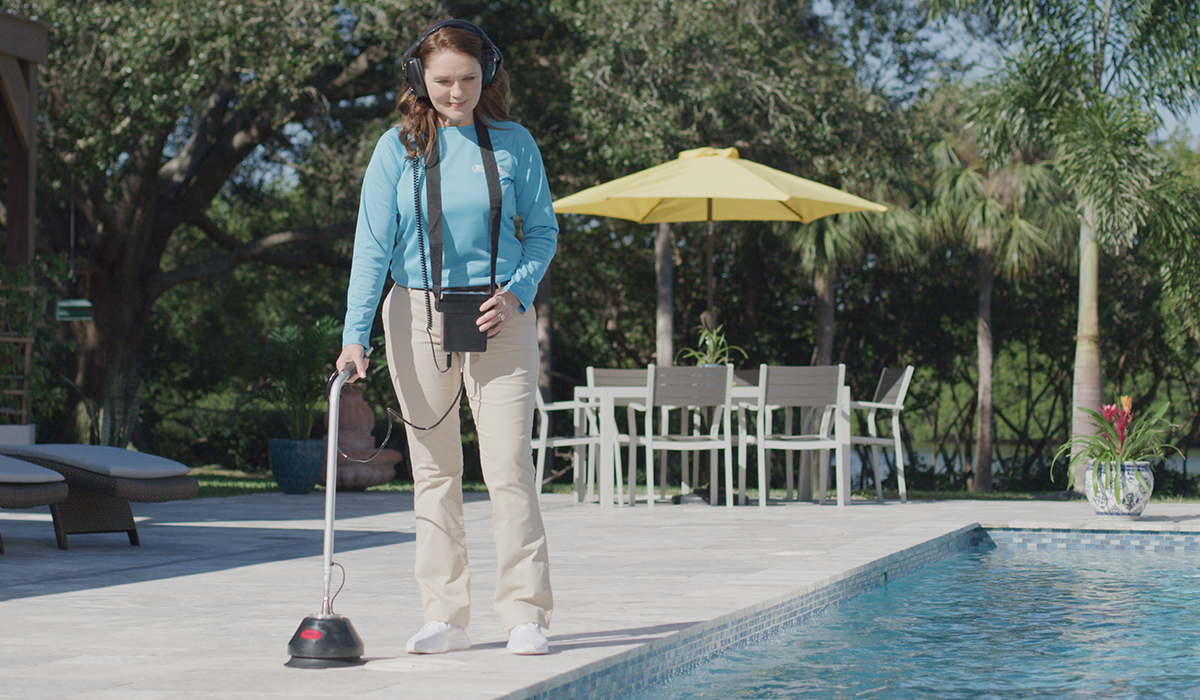The Cost of Pool Leak Detection in Brisbane: What to Expect

Owning a pool in Brisbane’s sunny climate is a luxury, but leaks can turn this asset into a costly liability, driving up water bills and risking structural damage. Pool leak detection in Brisbane typically costs between $220 and $500, depending on factors like pool type (concrete, vinyl, or fiberglass), complexity, and detection methods. Early detection is critical to avoid skyrocketing water bills, which can exceed $1,000 annually for even minor leaks, and to prevent damage to the pool or surrounding areas. This article analyzes the typical costs of pool leak detection in Brisbane, explores how pool type and complexity influence pricing, discusses fixed pricing models, and highlights the savings from addressing leaks promptly.
Understanding Pool Leak Detection Costs in Brisbane
The average cost for professional pool leak detection in Brisbane ranges from $220 to $500, with most homeowners paying around $350 for a standard inspection, according to industry sources like 1300 FINDLEAK and hipages.com.au. This price typically covers a comprehensive inspection using methods like dye testing, pressure testing, or electronic pinpointing, but excludes repairs, which can range from $100 to $5,000 depending on the issue. Costs vary based on several factors, including pool type, size, leak location, and the technology used.
Factors Influencing Pool Leak Detection Costs
Pool Type:
-
Concrete Pools: Concrete (or gunite) pools are common in Brisbane’s in-ground installations but are the most expensive to inspect, often costing $350–$500. Their complex structure, including plaster finishes and embedded plumbing, requires advanced techniques like hydrophone testing or scuba inspections to detect cracks or leaks in the shell. Repairs, such as sealing cracks ($75 per linear foot) or resurfacing ($10,000–$20,000), further increase costs.

-
Vinyl Pools: Vinyl liner pools, often above-ground or semi-in-ground, are less costly to inspect, typically $220–$350. Leaks are usually visible tears or holes, detectable with dye tests or visual inspections. Repairs range from $10 for a DIY patch to $1,200–$5,000 for liner replacement, depending on whether the pool is above-ground or in-ground.
-
Fiberglass Pools: Fiberglass pools fall in the middle, with detection costs of $300–$400. Leaks often occur at fittings or cracks in the gelcoat, requiring recoating ($300–$400) or targeted repairs. Fiberglass’s smooth surface simplifies detection compared to concrete but is more complex than vinyl.
Complexity of the Leak:
-
Simple Leaks: Leaks at visible areas like skimmers, lights, or fittings are easier to detect, costing $220–$300. These often involve minor fixes, such as tightening screws ($50–$100) or patching ($10–$30).
-
Complex Leaks: Underground plumbing leaks or slab leaks under concrete decks are harder to pinpoint, pushing costs to $400–$500 or more. These require pressure testing ($200–$500) or excavation ($500–$5,000), especially if the leak is in buried pipes or the pool’s structural beam.
-
Multiple Leaks: Pools with multiple leaks or extensive damage (e.g., widespread cracking) may require comprehensive testing, increasing costs toward the higher end.
Pool Size and Accessibility:
-
Larger pools (e.g., 33’x18’) require more time and resources, raising detection costs. A 2025 Angi report notes that larger pools lose up to 600 gallons weekly through evaporation, complicating leak detection. Smaller plunge pools, popular in Brisbane per Poolz, are cheaper to inspect.
-
Pools in hard-to-access areas, such as backyards with limited entry, may incur additional fees for equipment setup or excavation.
Detection Methods:
-
Visual/Dye Testing: The least expensive method ($220–$300) involves using food coloring to identify leaks in visible areas like skimmers or cracks. It’s effective for simple leaks but less so for plumbing issues.
-
Pressure Testing: Costing $200–$500, this method tests pool lines for pressure drops, pinpointing underground leaks without excavation. It’s standard for in-ground pools.
-
Electronic Detection: Advanced methods like hydrophones or ultrasonic devices, used by firms like 1300 FINDLEAK, cost $350–$500 but offer high accuracy for hidden leaks.
-
Scuba Inspections: For underwater leaks in concrete or fiberglass pools, scuba dives ($300–$500) provide inch-by-inch shell inspections, often including detailed reports.
Read more: Top Smart Home Gadgets to Pair with Solar Panels for a Greener Home
Fixed Pricing Models in Brisbane
Many Brisbane pool leak detection companies, such as 1300 FINDLEAK, offer fixed pricing models to provide transparency and avoid unexpected costs. Fixed pricing typically ranges from $220 for basic visual inspections to $500 for comprehensive tests, including pressure testing and electronic pinpointing. These packages often include:

-
A thorough inspection of the pool shell, plumbing, and equipment (e.g., pumps, filters).
-
A detailed report with leak location, extent of damage, and repair recommendations.
-
A money-back guarantee if no leak is found, as offered by Aqua Leak Detection.
Fixed pricing contrasts with hourly rates ($75–$125/hour), which can escalate for complex jobs. For example, a 2-hour inspection at $100/hour costs $200, but additional time for hard-to-find leaks could double the bill. Fixed pricing benefits homeowners by capping costs, making budgeting easier. Companies like Integrity Pools emphasize competitive fixed rates, ensuring value for Brisbane residents.
Read more: Swim Spa Sunroom vs. Traditional Pool: Which is Right for You?
Savings from Early Detection
Early leak detection is crucial to avoid high water bills and structural damage. A small leak can waste 700–1,000 gallons of water weekly, adding $500–$1,500 to annual water bills in Brisbane, where water rates average $3.50 per 1,000 gallons. Additional savings include:
-
Preventing Structural Damage: Leaks can erode soil, destabilize pool foundations, or crack decks, costing $1,000–$20,000 to repair. Early detection limits damage, reducing repair costs.
-
Reducing Chemical Costs: Leaks disrupt chemical balance, requiring $50–$200 monthly in chlorine or pH stabilizers. Fixing leaks early saves on chemicals.
-
Avoiding Equipment Strain: Leaks overwork pumps, leading to repairs ($250–$2,400). Prompt detection extends equipment life.
A 2025 case study from Nelson Pool Company noted a homeowner saved $2,000 by detecting a minor skimmer leak early, avoiding pump replacement and deck repairs. Regular maintenance, such as annual inspections ($100–$200), further enhances savings by catching issues before they escalate.
Pool Type-Specific Considerations
-
Concrete Pools: Most prone to cracks, especially in older pools or Brisbane’s clay-heavy soils, which shift during wet seasons. Detection requires scuba or hydrophone testing, and repairs like hydraulic cement patches ($50) or beam fixes ($500–$1,000) are costly but essential.
-
Vinyl Pools: Leaks are often visible tears, detectable with DIY dye kits ($10–$20) or professional inspections. Above-ground vinyl pools are cheapest to fix ($150–$350), while in-ground liner replacements cost $1,200–$5,000.
-
Fiberglass Pools: Leaks at fittings or gelcoat cracks are common. Recoating ($300–$400) is cost-effective, but full resurfacing ($6,500) may be needed for extensive damage.
Tips for Brisbane Homeowners
-
Conduct a Bucket Test: Before calling professionals, perform a bucket test to confirm a leak. Place a bucket of pool water on a step, mark water levels inside and outside, and compare after 24 hours. If the pool loses more than the bucket, a leak is likely. This saves $350 on unnecessary inspections.
-
Monitor Water Bills: A sudden increase (e.g., $100/month) signals a leak. Check bills monthly to catch issues early.
-
Choose Reputable Providers: Select companies like 1300 FINDLEAK or Gator Leak Detection, known for fixed pricing and comprehensive reports. Compare quotes to ensure value.
-
Schedule Annual Inspections: Regular checks ($100–$200) prevent major leaks, saving thousands in repairs and water costs.
-
Check Insurance: Some policies cover leak detection and repairs if maintenance is documented. Verify coverage to offset costs.
Challenges and Considerations
-
DIY vs. Professional: DIY detection with dye kits ($10–$20) or pressure test kits ($50–$100) saves money but risks misdiagnosis, leading to higher repair costs. Professionals ensure accuracy, especially for complex leaks.

-
Hidden Costs: Draining ($180–$230) or refilling ($55 per 5,000 gallons) adds to expenses. Excavation for underground leaks can cost $500–$5,000.
-
Climate Impact: Brisbane’s subtropical climate, with heavy rains and heat, accelerates evaporation (up to 2 inches weekly), mimicking leaks. Professionals distinguish between evaporation and leaks, avoiding unnecessary costs.
Conclusion
Pool leak detection in Brisbane, costing $220–$500, is a critical investment to protect your pool and budget. Costs vary by pool type—concrete ($350–$500), vinyl ($220–$350), and fiberglass ($300–$400)—and complexity, with simple leaks cheaper than underground plumbing issues. Fixed pricing models, offered by firms like 1300 FINDLEAK, provide transparency, capping costs for predictable budgeting. Early detection saves thousands by preventing high water bills ($500–$1,500/year), structural damage ($1,000–$20,000), and equipment strain ($250–$2,400). By conducting bucket tests, monitoring bills, and scheduling annual inspections, Brisbane homeowners can minimize costs and maintain their pools’ integrity. Investing in professional detection ensures accuracy and long-term savings, keeping your pool a source of enjoyment rather than expense.










